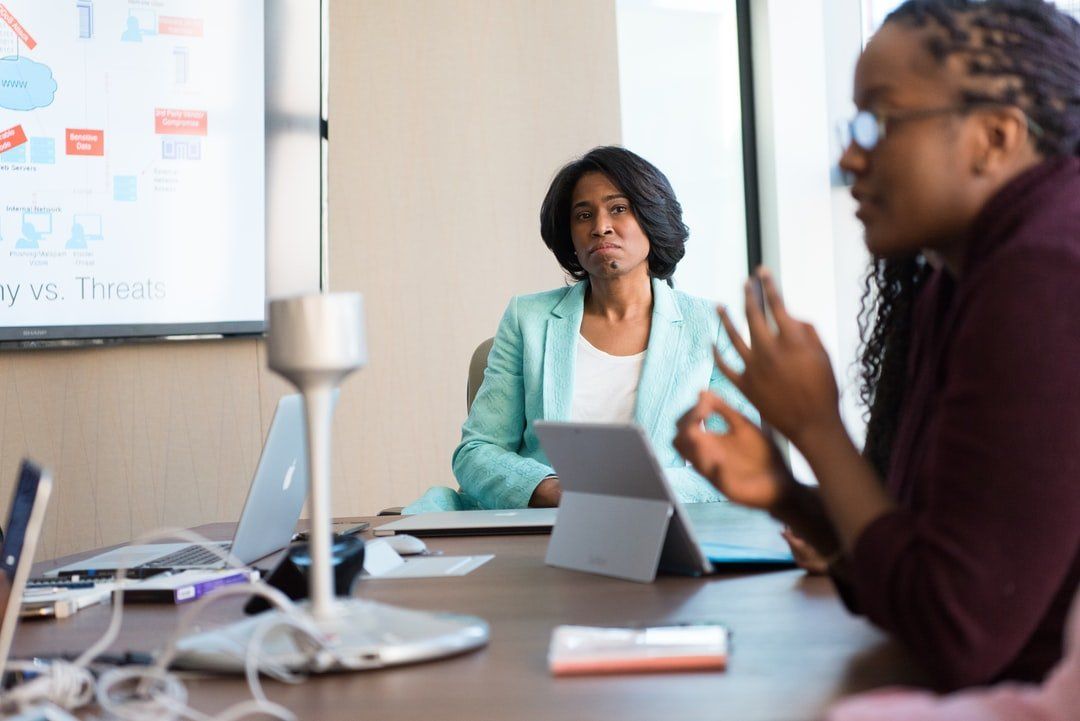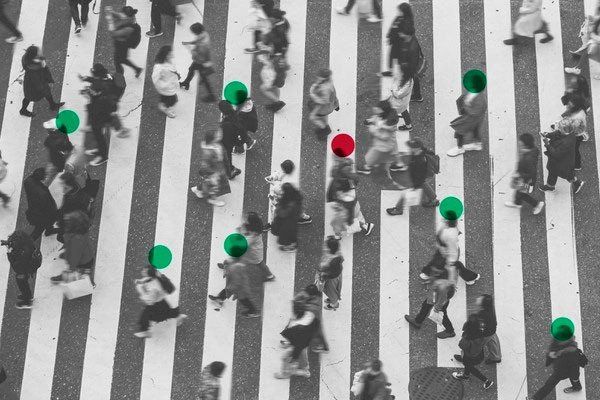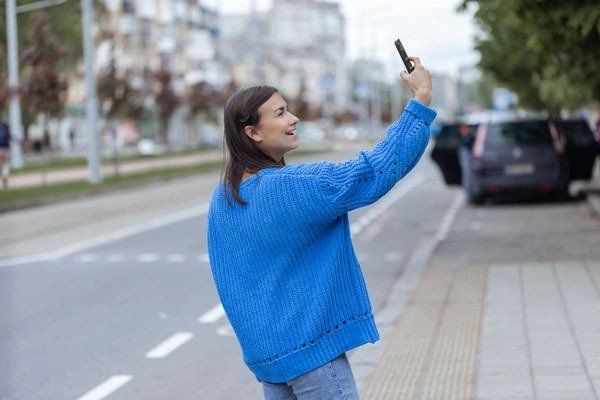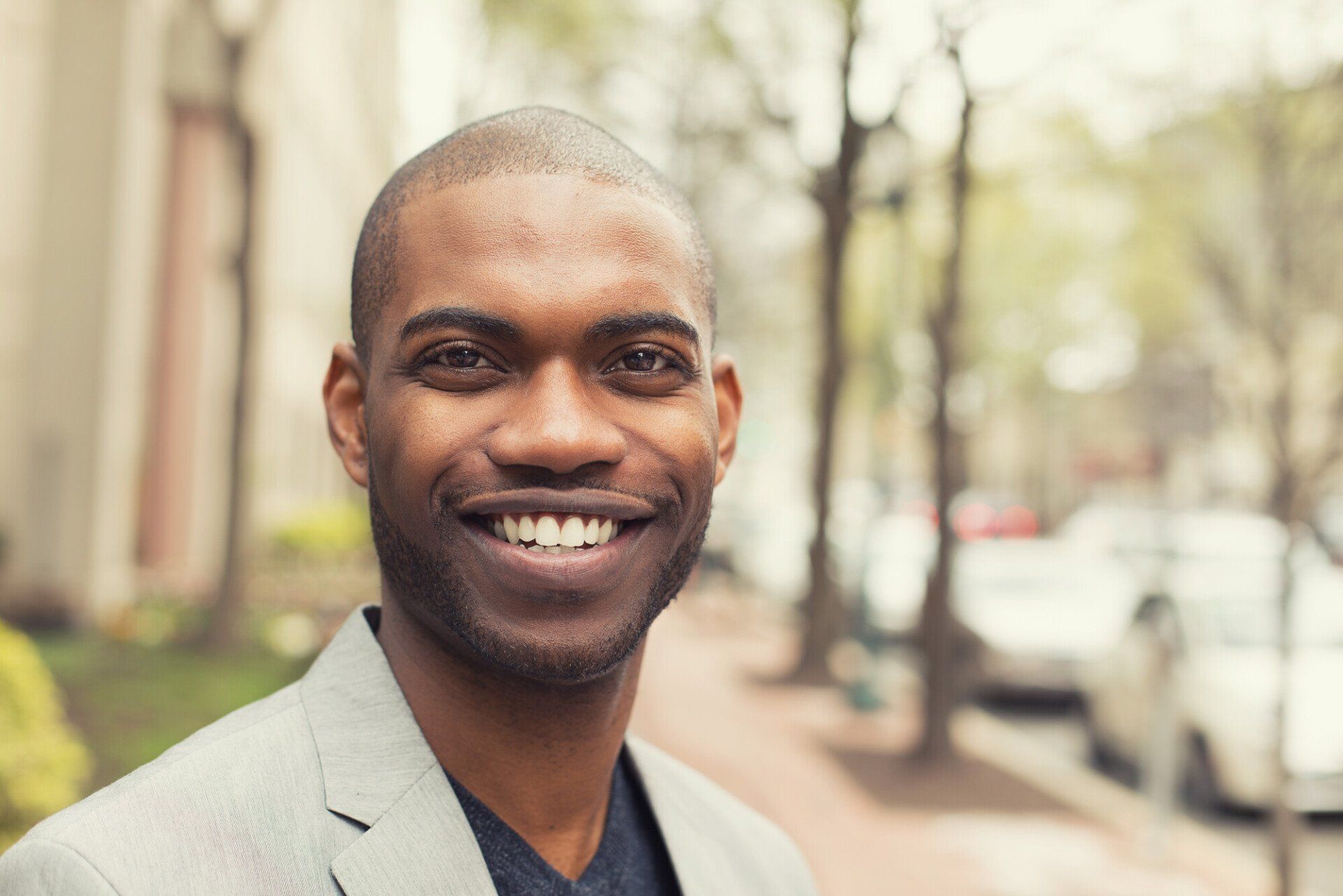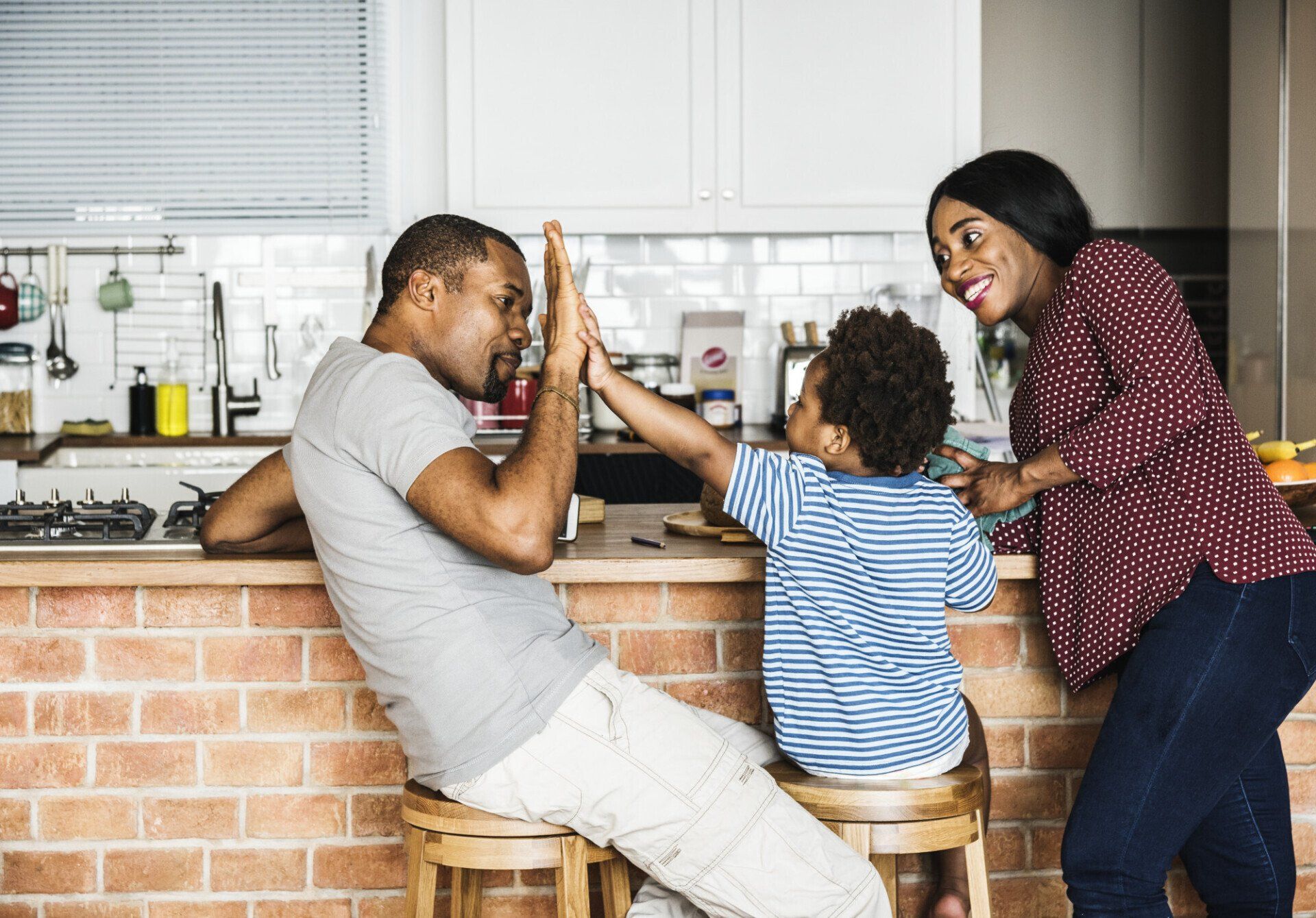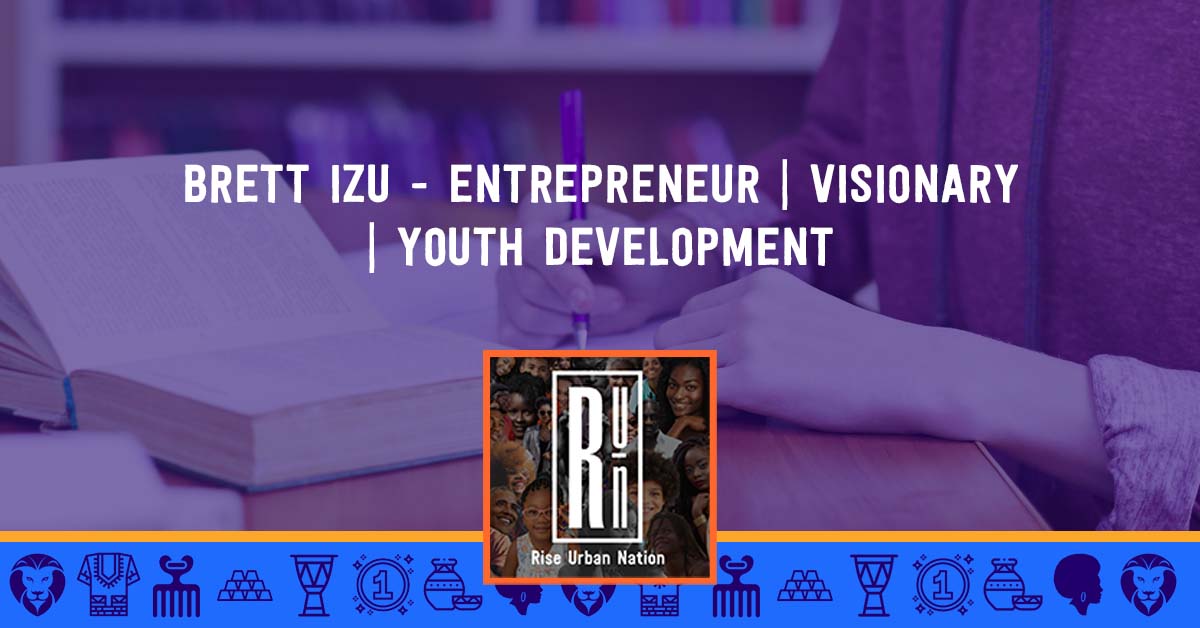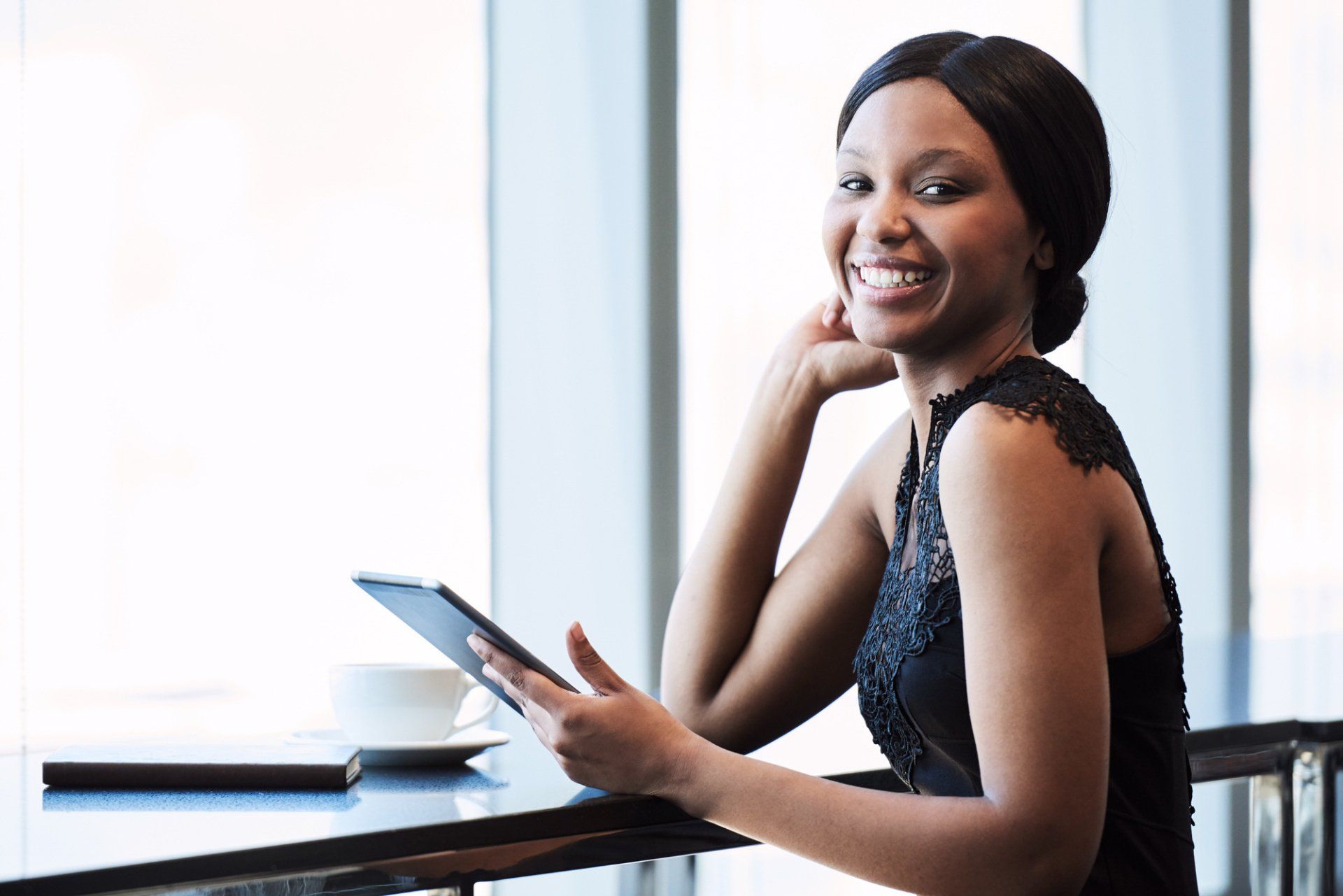Erin Horne McKinney - CEO | Entrepreneur | Equity Builder | Futurist | Change Agent
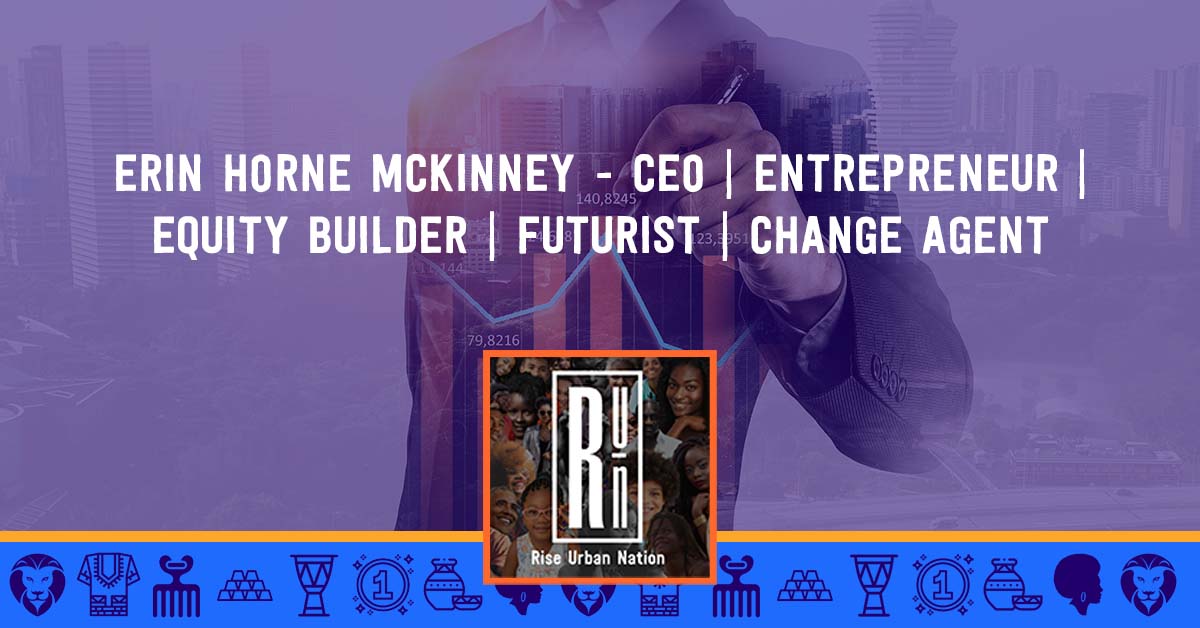
How do businesses thrive despite different issues that arise? It’s time to start looking at miracles that are happening in our lives and opportunities that we can turn to reality. Technology is also playing a huge part in it. Passionate about social impact, equitable entrepreneurship, and inclusive innovation, Erin Horne McKinney is the founder of Black Female Founders (#BFF). She is a founding member of the Black Innovation Alliance (BIA). In this episode, she shares the importance of equity and why black women should be treated fair and right. She also discusses the concept of innovation and how companies survive to make an impact in an industry. Tune in to learn a lot of deep insights on economic and business development, diversity, and more.
Twitter: @erinhmckinney
Facebook: https://www.facebook.com/erinhornemckinney
Instagram: @erinhmckinney
Pinterest: @ehornemckinney
Clubhouse: @erinhmckinney
LinkedIn:https://www.linkedin.com/in/erinhornemckinney/
We are currently surveying our listeners (or viewers) to learn more about you. Please take a few minutes and visit our website and click on the 'Listener Survey' link found on the home page. Thank you."
http://survey.podtrac.com/start-survey.aspx?pubid=ON_VODqpc104&ver=short
---
Listen to the podcast here:
Erin Horne McKinney - CEO | Entrepreneur | Equity Builder | Futurist | Change Agent
Welcome to another episode of the show. It is great to always be with you. We are running strong and getting a lot of feedback. Make sure you support us on social media. Click the link on Instagram. Also, make sure that you like and leave those five-star comments on Apple Podcasts. I’m excited to say that over in South Africa and Nigeria, you brought us to the number 87 spot.
We are so thankful. Keep doing that for us. That is how we show that platforms and shows like this are needed and wanted, so keep on liking and leave the comments. Let us know what you think and look out for the Risepreneurs website to find more ways to connect and engage with us. We want to engage with you to get your feedback.
The next guest that I have is Erin Horne McKinney. I have always loved connecting with people from our hometown of Washington DC in that DMV area. She is at Howard University. I didn’t go to Howard, but I spent plenty of time trying to sneak into Howard parties and party with people at Howard campus. I know the vibe and the lingo a little bit. She is a phenomenal woman and making entrepreneurship more inclusive.
She has been everything from an Angel investor, and I believe she still participates a little bit in Pipeline as a member and Angel investor. She is the Chief Executive Officer at ACCESS Consulting. She has also done some stuff with Boston Impact Initiative Funding, the Founder of Black Female Founders, and the Chief Executive Officer of WomenVenture. She is truly making entrepreneurship and innovation inclusive and bringing all these amazing groups together. Her story and testimony are amazing to me. I don’t want to steal her thunder, so without further ado, let’s get into the episode with Erin Horne McKinney.
---
This show started after years of people telling me, “You got to do a podcast,” because I do a lot of public speaking locally in San Diego and HU.
Are you HU? I didn’t know that.
I’m not HU. I lived in Northwest, Washington DC. I grew up in DC. When I was in high school, we used to sneak to some HU parties. I always wanted to go to HU but it didn’t happen for me.
I’m impressed. Do you know how many Howard people were? I’m like, “HU,” and they are silent. I’m like, “Did you go? I feel like you didn’t go.” You don’t even know how to do a throwback on that because that is almost how you determine whether or not it takes them as the Black card. It is the same concept.
I grew up in DC when DC was the murder capital. It was terrible.
That is around the time I went to school there.
If you go back now, it looks more like a chocolate chip cookie.
I tell people like, “It used to be Chocolate City, then it went to mocha, then a little latte, and then now, I don’t know if there is any chocolate in it left. It has been pushed out and pushed out.” It was a murder capital but for all that was happening in DC on the negative side, there were so many positives, and that was so influential to me to go somewhere.
I remember being in college not just on Howard’s campus but even around DC. I never saw White people for days. It felt like you had a government that had so many cool programs that were created. Every doctor I went to, every dentist or lawyer was Black. The level of Black excellence and Black entrepreneurship, more importantly, around you was so ingrained in me early on, but not even realizing the impact until you see it later or recognize that later and see the starting different.
I agree with that. I didn’t have my biological dad growing up, so I was raised by my stepfather, who is Nigerian. I was influenced by not only Black American culture but African Culture and then African from the diaspora. I had Jamaicans and Haitians in my community. I was drenched in a lot of Black and African culture when I moved to San Diego. I moved out here because I was getting a lot of trouble over there. It was a complete culture shock. I was like, “Where are the Black people?”
I grew up in Maryland through elementary school but I moved away, came back, and went to go to Howard. In my first semester, I took a Black diaspora class. I didn’t even know what the word meant at seventeen, like, “What does that even mean?” Everywhere I went, people would either talk to me in Spanish, and I’m like, “I don’t speak Spanish,” and they are like, “Are you not Dominican?” I’m like, “No,” and then it would be somebody who was Black, so I’m like, “Do you speak Spanish?” They start explaining their history, and I’m like, “Black people in the world speak Spanish?”
My first boyfriend in college was Haitian. I heard him and his family talk in French, and I was like, “What is the history with Haiti?” DC is like the entire globe in a bubble. To me, that is why I have a bit of a more sophisticated palate because I have always loved food from around the world because of DC. You can get all of that there. Anyway, the diaspora is such a powerful concept in terms. I have had so many businesses that have been named diaspora in it.
What do you think influenced that?
To talk about Black folks always, we need to include every other minority.
It was that first semester at Howard and realizing how many Black people are all over the world, and we have influenced it. Like many entrepreneurs, you have ideas that are too ahead of their time. Black travel has now become a thing, but while I was in grad school at Howard, I got with a young brother who was a Black diaspora professor at Howard. We were creating a show called Destination Diaspora, and it was about the influence.
Think about the Rick Steves travel books and videos that you see on PBS. It was like that but from the lens of Black folks. Rick Steves is always going to Europe and talking about the history of Germany, but nobody ever does that for the African culture around the world. The idea and concept of the show were that we would go to all of these different places around the world and talk about how the African diaspora impacted that culture from the food, the arts, the architecture, and language.
Sometimes, we need to revive that concept because people are embracing their Blackness now. Even when I started Black Female Founders, people were like, “Putting Black in the name is a little too much. People are not ready for that.” That was years ago, but now, Black is in everything, and people are all empowered and excited.
People would say, “Why don’t you change it to Brown or this?” I’m like, “That is not what I’m doing,” because I feel like in order to talk about Black folks, we need to include every other minority. When they do their stuff or when they are empowering themselves, they are not including us. Why do we need to do that in order for our struggles, our needs, and our culture to be seen?
I don’t know if you remember it. I feel like we are coming back to Black empowerment. There was a period of time in our history and culture where everybody was rocking the HBCU shirts during the mid-‘90s when Martin was out.
That was the time we had A Different World and the Cosby Show. Boomerang is still one of my favorite movies. Also, do not forget School Days.
We were rocking The Medallions. Somewhere, I don’t know what happened, that culture went away. It died. I’m not sure if the media or powers were saying, “This is too much Black empowerment. We need to cut this. Let’s highlight gangsta rap music. All this conscious stuff, let’s make it not cool.”
As a communications scientist and somebody who has studied media, that is exactly what happened. We started to have too many positive images. The media influences everything that we do. We don’t even realize that subconsciously. My mom said to me, “It is so great now. Every commercial you watch now has a Black person in it where before, you never saw that.” Many advertisers are changing that narrative or there are a lot of interracial couples in the commercials now and you have never seen that before.
A couple of years ago, I remember there was a Cheerios commercial that came out with a Black father and a White mom. The little girl pours the Cheerios on her dad while he is taking a nap to help with his heart. Social media lost their mind. They were like, “Oh my God.” People have to see those things in order to process that that is what the world looks like. You can’t continue to have commercials that just show White couples doing everything, especially when so much of our culture is being appropriated each and every day. From my mother in her 70s, to take note, I thought to see a noticeable shift in commercials was pretty significant.
I can see me and you are going to have a great conversation in this episode. The reason I finally decided to do this show is because I did workforce development for a long period of time in HR building youth programs. It transitioned from adult programs to shifting in the HR space in government, but during that journey of where I’m at now, a few years ago, I got a call from Google to help with a program called Startup Weekend with TechStars.
They are like, “We want to get more people of color to this event. We recognize you as somebody that is really in tune with your community. Could you help us promote this event and get some more people of color?” They were on a DNI at that time. I was like, “I can do that,” and then they were like, “You should join.”
I was like, “I’m not an entrepreneur and I’m not in the tech space.” They were like, “You are more entrepreneurial than you know,” because I developed a lot of different workforce development programs, which I didn’t realize at the time is the same as building a startup. I was just building it in the hub of another company.
Much of my work is people, including myself, who have been there. We are teaching people to see that they are entrepreneurs. That goes back to the imagery. We haven’t seen it, so we don’t know how to apply that terminology and language to ourselves. Were you an entrepreneur?
I was an entrepreneur and then I got introduced to entrepreneurship. Long story short, we won the competition and we were the most diverse team there. That is when I got to this journey that I’m still on, and the eye-opening came. I was introduced to Angel investors and venture capitalists. I was new to it but also understanding that 10% of my company for $400,000 didn’t seem right for me. Navigating that world as a Black man, I was like, “How come you gave Susie over here this deal and I’m getting this deal?” I was trying to navigate that. It was a whole new world. There are things that I still don’t know and need, and I get that, but you try to rake me over.
That is so common. In 2020, there was so much love and honor to George Floyd because his life has unlocked so many dollars, but it still pales in comparison. We still are not the place and space of any real reparations or real equitable access to capital.
Along the way, I have met so many amazing people like yourself in this space, whether it is intrapreneurship, entrepreneurship, or community developers that built these amazing programs. I was like, “This story needs to be told. This is a Black history in the making.” I realized it needed to be told even more because from the adults that I have worked with in the workforce development to the youth, we have such limiting beliefs about what we can do, what we are, and what we are able to do. When they see one, they are like, “That is an anomaly. That person just got lucky and was able to do it.” I was like, “There is more of us out here. I’m going to create this show to highlight more of us out here that are doing amazing stuff until every one of them believes that it is possible.”
Thank you for doing it because even the episodes of yours that I have had an opportunity to listen to, I rarely get time to listen to the way that I would like. I always find myself sharing them with other people, including my kids. I’m like, “You got to listen to this episode. You will thank me later.” It is very powerful to share these stories. Not enough of our stories are being told so thank you for creating that space and holding space.
It is no problem. With that being said, welcome everybody to another episode of the show. I’m going to steal nuggets from that first bit. I always like to record that because I get into such rich dialogues. To begin the episode again in case you don’t get the first part, but those of you, will know this a little bit later. I’m going to do the HU.
You know.
For my Howard University people, you already know what it is. We have got a great episode. I want to ask that introductory question. Who is Erin?
Who I am is ever-evolving like everyone, but in 2021, I am a womanist. I’m an Afrofuturist, a mother, and a community builder. Also, what I often tell people is I’m an advocate and an activist at the end of the day for the Black community, specifically around our participation in the innovation economy and in entrepreneurship.
We are the hub of the innovation economy even though we don’t get all our due credit, but that is another conversation of the story. I have been hearing this term Afrofuturist. Break that down. What does that mean? What is an Afrofuturist?
Futurism comes more out of Sci-Fi, but it is around being focused on the potential of what can be in the future and is captured a lot in creative spaces. Black Panther is all about Afrofuturism. The Afro piece is applying that lens to Black culture and Black participation in the future. A lot of Afrofuturists are around making sure that we are included in the future and being advocates for that, whether it is capturing it in the art and in creative spaces, but it is also around our thinking specifically in the innovation economy and making sure that we are going to be thought about and included.
Right now is a great example of it with the impact of COVID and that term digital divide that was around in the late ‘90s and early 2000s. It was around internet adoption and whether or not people even had broadband access and so forth. It reared its head because how many children were impacted when their schools were not ready to shift to remote learning? How many kids didn’t have laptops? It has been highlighted a lot around education, but it is the same around our workforce. How many people lost their jobs because their businesses or employers had not prepared their companies to be fully engaged and touched by technology?
If we just really pay attention, our life is a series of millions of miracles all the time. Some are bigger than others, but we all have them.
Technology touches every aspect of our life. There are some organizations that are still slow to that adoption, which is unfortunate because, at times like this, that is where we see a huge impact on our economy, but more importantly, the whole communities are left out of it. The statistics around how many children of color have not learned in 2020 is sad. This is going back to who I am and being this town crier. One dear friend had referred to me as the Harriet Tubman of tech because I have been doing this before. It was cool.
I have been talking about our communities, trying to bring our communities along, and following the North Star into making sure that we are participating, we understand it, we have businesses, and we own things within the innovation space. Innovation and tech are two different things. Sometimes, those terms get used interchangeably, but tech is specifically all things technology like devices, software, and what have you, but then the innovation is about doing something new, better, and efficient. Oftentimes, that efficiency is aligned, connected, or utilizes technology in order for us to get there.
You probably would have helped more people if they knew they were slaves to outdated technology, processes, and procedures.
So much so because some people are thinking, “I don’t want robots to take my job,” and that is a very real concern, but also, own and create the robot that companies are hiring to automate systems. Own the technology. In our community, we are so used to having so much of our ideas, products, and services either completely stolen from us or undervalued. We are an underestimated community.
I agree with that. I’m going to jump into your career here a little bit. I don’t know how to define you other than a Renaissance woman because I’m looking at your career. You went from adjunct professor to managing partner to VC, student, success lead, Angel investor, and CEO. What can you not do?
There was an interesting Ted Talk years ago about being a multipotentialite. I loved it because it was around who says that you have to pick one thing and be good at one thing. I do remember when I was a kid, I had one of those books that you get to pick what you want to be when you grew up, which studies show now is the worst question to ask children. I remember I went down that list and I picked almost everything. I wanted to be an artist, a teacher, and a scientist. I also wanted to own a business.
I was like, “I want to do all these things,” but it was dismissed as a kid because it was like, “You don’t know what you want to do. You are all over the place,” but what I realized is that I am all of those things in everything that I do. All of the things have come. I am creative. I just create differently. I create economic development and business. I am a teacher. I have been a professor, but I also teach and mentor. All of the work that I do is around bringing everybody along with me. It is not just by myself.
I’m a communications scientist. What that means is I’m looking at communications in the field of media and the impact that it has from our language to media imagery and the messages that it sends. I wanted to be a firefighter too. That was on the list. I put out fires all the time. My background is a long windy road, but all of those skills are transferable. If you want me to talk about it, I will tell you how we got here, but every single experience has shaped me for this moment and the moments that are to come.
We will talk about it in a different context. This is my own personal preference because when you said teacher, I feel like a teacher doesn’t do you justice. I would like to call you an educator because I feel as an educator, no matter what space you are in, you are an educator. Even in this conversation that we have had now, you have educated me on a couple of different things. You are a natural-born educator and you bring that educational component to you no matter what field you are in or what room that you touch. Somebody will leave with a valuable lesson nugget, piece of knowledge, or information if they are paying attention.
One thing I often tell clients or students when I speak to them is, “It is not where you start but it is about the journey and where you finish.” A lot of individuals have trouble with the start, so I always like to hype my successful people where they started from. The simple question is, what was your first job and a valuable lesson that you learned from your first job?
Are we talking about the first job as a kid or the first full-time job? Which one do you want?
It can be both because I want people to see the dirty side, so give me the first one as a kid and what did you learn, and then your first full-time W-2 job because I know sometimes the first job as a kid may not be that W-2 job.
I won’t go through every single one but I started working very early and realizing the power that I had with bringing skills. My first real job is, because I grew up in the era where there were the Baby-Sitters Club books, I was a babysitter/pet sitter for neighbors. I found that very empowering to get paid and do something that I love. I love kids and animals. Also, to get that at 10 and 12 was super cool to me. Moving from that, my first part-time job and played a role in who I have become now, was with Fingerhut. I don’t know if anyone remembers Fingerhut.
Is that a pizza place?
No. It is a catalog where you order things out of a catalog. Somebody I knew worked there and it was good money. You could start working there as early as 15 or 16. You are doing telemarketing and selling products over the phone. I realized how good I was at sales. The great thing about Fingerhut is you get it, and if you didn’t like it, you could always send it back, but that didn’t matter because I got that sale and that counted. I was the number one salesperson all the time in whatever shift I worked.
I know the people that worked with me hated me but my family loved me because there was always a price per shift so whatever we were selling, oftentimes, we would get to take that home. I packed my family’s kitchen with all that cool stuff. Interestingly, I went to school. I went to Howard to be in Broadcast Journalism because I knew I wanted to be the next Connie Chung, Oprah, or Cathy Hughes. I grew up in Minneapolis. I went to high school in Minneapolis, as we talked about in the crack era of the day. The only Black radio station we had was a community radio station.
It upset me because I could not listen to the music that I wanted. I couldn’t get the signal all the time, so I realized like, “I got to own it in order to fix that problem.” I started looking at ownership issues as a kid. To me, I thought I had to be the best journalist possible in order to own something because that is what Oprah was doing at that time. I got into journalism and realized that is not how it works at all. Those people work on the business side. They understand advertising as much or exactly like the show Mad Men. Did you ever see that show?
I have seen that show.
That is exactly what that whole world is about. It is a bunch of ideas and selling it. I realized going to work at TV stations, newspapers, and so forth at that time in the mid to late-‘90s. All of the journalists were driving hoopties. When I talked to the publishers and the GMs, they had all gone through the business side and they were pulling up in Benz’s, BMWs, and so forth. I was like, “There is a power dynamic here.” I shifted my career at the very end of college to Communications Management.
I had an amazing professor who was one of the first Black general sales managers in the country. It was on radio if I remember correctly. He blew my mind with the business structure of it all. I got coveted for my very first job that blew my family and everybody away because I had a number of offers to go into journalism and be on air or be a copy editor.
I was like, “I can be on air for $18,000 a year in the middle of nowhere of the country town. I can maybe make around $30,000 a year as a copy editor at a newspaper, but I will have carpal tunnel by the time I’m 30 or I can sell an intangible, which is airtime, and make six figures. That is what I’m going to do.” I ended up going to New York and getting into a very coveted training program selling national advertising. It was a rep firm that had CBS Radio, Clear Channel Radio, and ABC Radio at that time. They had a lot of those different groups. I was on the ABC Radio team.
I resonate with so much of your journey because I started out in radio as well or tried to chase that radio dream. After taking the internship in the Black radio station I was interning for, it got bought out by Clear Channel. Clear Channel started buying everything. Although I saw the structure or the dynamic shift already, it changed once Clear Channel took it over.
I was passionate about art, music, and I wanted to connect with different artists and bring them on the shows, but we couldn’t do that. We had to do whatever the upper boss said. They were like, “This is going to be the formatting and this is what’s going to be played.” The DJs had no voice. They had no power. All the execs had the power. The other part of the power was in sales and marketing because they were bringing in the dollars. I switched my major to Business Marketing because I was like, “This is not what I wanted.” I resonate with everything you are saying.
Later on, I ended up working at Clear Channel locally in Memphis and then also in San Francisco radio. I have jumped on Instagram Live with one of our talents. We both went through horrific experiences with Clear Channel due to consolidation. They started gobbling up everything and cutting what they were paying their talent and salespeople. Those margins have been smaller and commission checks were cut smaller. My whole trajectory in life changed because I was working for Clear Channel in San Francisco.
On Barack’s first inauguration, I don’t even think they were public at that time. They might have still been family-owned. The owners were from Texas. They were very conservative Republicans and we are hot to death. The economy was shifting already. They made it mandatory that nobody could take off across the country to go to the inauguration. You had to work that day. She and I were retelling this story to each other. We had to sit there in a conference room, at least in our market, and watch the inauguration on TV, which was such a historical event. I had two Black boys who at that time were under seven and I had wanted to go back to DC, although I hadn’t lived in DC since graduating from Howard.
At the top of 2009, they made us sit in a conference room, watch the inauguration, and then laid us off one by one. They had a massive layoff across the country under the hype and the historical event, and that was the inauguration. Thousands of people were laid off across the country, especially a lot of women and minorities. It was one of the worst days of my life, but now, I look back, and I’m like, “Thank you, Clear Channel.”
What I had then was a whole Legally Blonde moment where I was like, “The companies that I pour myself into and do all this work for don’t give a crap about me.” That is one. Two, at the same time, I had been trying to get into tech from an employee standpoint, and those companies were like, “If you went to an HBCU, we rank those lower in our hiring practices,” so I couldn’t get a job in tech.
I had tried to start a tech company while I was out in the Bay Area. I couldn’t get into any of the programs such as the Y Combinator and things that existed in the mid-2000s when they were very few programs. I said, “Nobody is talking about women and minorities in the innovation economy from the standpoint of workforce and employment.” If you get into those ecosystems, oftentimes, founders of other tech companies used to work at other tech companies. They get to know everybody, so then, they are validated off of the companies that they have worked for or in entrepreneurship.
Legally Blonde is a funny movie, but it really is about getting angry enough about something and doing something about it. I went back to DC to go to Howard for grad school to get into what was now looking back the early days of tech policy, but at that time, it was media ownership issues and new media policy work. That shaped my career, so thank you, Clear Channel, for giving me the boost.
People don’t even know that background because what you are talking about and reading off is my background from 2009 when, at that point, I was divorced with two young children. I’m a single, independent mom. I have gone from making six figures to having no money, which I had never done. I was going on unemployment for the first time and only had food stamps. I packed up my Prius with garbage bags with our stuff and drove me, a seven-year-old and an eighteen-month-old, across the country by myself. That itself was an experience from driving from California to DC.
People want you to slow down and dim your light to just help them to keep up with you.
I learned so much about myself and that strength that I had within me. I had never thought I would go to grad school. I never thought I would do something different but that experience made me realize that sometimes, you got to jump and do it. If you don’t have things in life that force you to do it, you will just sit there and be comfortable in a horrible situation. I don’t care if it is jobs or marriage. Now, when I see those storms coming in my life, I’m like, “I’m ready for this,” because that means there is about to be a transformation. Something is about to change.
That is so true. As I think about your story and my transformation, it is the same thing. After getting the degree and making good money, I got laid off. I was like, “This is not it.” I could have gotten another career doing the same thing, but it didn’t feel right anymore. It wasn’t the right path for me, so I was doing that soul searching, like, “What are you going to do?” Life is going to deal with you or you are going to deal with it. You can’t avoid it.
You can’t stop living out your purpose. That is the thing. I’m a firm believer in everything happens for a reason. I believe you should have goals and other stuff, but I’m also a firm believer in going with life’s flow because it is going to take you there whether you are kicking and screaming or not. There are plenty of times, as a woman of faith, that I have fought with and wrestled with God about what I wanted to do versus what God had for me, what I needed to do, and what I have always learned. The wisdom that comes with getting older is that what he has for you is always bigger and better than what you could even dream for yourself.
When I started to step into that flow, I realized I didn’t fight it anymore. Even in 2019, I took a sabbatical because I was like, “I don’t know where I’m going.” I hit some really troubling waters, and I thought, “I’m going to move back to the Bay Area.” I had never planned on being gone that long from moving in 2009. I thought I’d be right back after grad school, but as I started to try to move to the Bay Area, it was not happening. I ended up back in Minneapolis to take care of my parents during COVID, which I thought would just be for a few months.
The world changed. I was mad with God for a little bit. I was like, “Why have you forsaken me? Why am I back in Minneapolis?” I love Minneapolis, but it was because of my family. Sometimes, I’m still always sixteen and I don’t feel like they realize the grown woman that I am. It is more about family dynamics and other things.
The work that I have been doing is not known for tech policy or venture capital. I’m thinking like, “Is this where I’m supposed to be?” Who could have foreseen the long-term impact of COVID? Who could have foreseen that a whole global movement would be kicked off by the murder of George Floyd here in Minneapolis?
When all of that started to happen, I was like, “I see you, God. I need to be here as a soldier. You put me and aligned me at the right place at the right time to do the work,” because at the end of the day, that is who I am. I’m a soldier in the streets to make a powerful economic change, create generational wealth in our community, and rebuild, give hope and inspiration to people around what is possible by connecting these systems and these barriers that have existed.
Some people talk about breaking the glass ceilings, cement ceilings, mirrored ceilings, or whatever you want to call it, but I’m that first one in. I go in and take out some stuff. I feel like you can do more taking-it-out within the system versus fighting it necessarily from the outside. I move stealthily. I get into stuff and make it pop. I realized that once I saw the impact of his death on the world, that is where you got to honor God. You are like, “I see what you are doing here.” You set stages for things. These are unprecedented times. Even if you are not a person of faith, whoever or whatever you want to call it, you would better be paying attention because it is very powerful, and that is where I am with it.
I am content. I know that I’m supposed to be in Minneapolis right now and have now purchased a multigenerational home for my parents to live with me with my kids so that I can protect everybody and love them while we get through this because we still don’t know where this is going to go and because Biden and Kamala are in office and a vaccine is out. What we saw on January 6, 2021, and what we are still seeing is, there is a shift that has happened and some things that I think that are still yet to reveal themselves.
There is that old saying, “If you want to make God laugh, tell him your plans.”
That is one of my favorites.
I do a radio show called Let’s Talk About It on GODRadio1 with other Black gentlemen. One of my cohosts, Mike, says, “Sometimes, you have to get in alignment with whatever your spiritual faith of being is. When you get into alignment by surrendering and being in mental gratitude of being a servant, then everything will happen for you the way it is supposed to happen.” I’m in agreement with that. These are unprecedented times, so it is the fact that you need to have some type of awareness and stillness to take this in. It is not just business as usual or another thing as usual. Take a pause and reflect on what is going on in life right now.
I will add to that. Take a pause and look back at your life. I don’t care who you are. There are so many times when if we really pay attention, our life is a series of millions of miracles all the time. This is still the journalist in me, but I love hearing people’s stories because you can see God moving that work and riding them through all of those trials and tribulations. It doesn’t matter how horrible or how amazing your story is.
There was one that I think I saw as a meme somewhere. It said something like, “How many hundreds of ancestors had to have certain things happen in order to even create you?” Having a baby itself is such an amazing miracle. There are so many people who will tell you who can’t have kids, “You talk about that alone.” Your existence is such a miracle, and also, surviving childbirth because that is no punk stuff either. My point is that I’m an imperfect human. I don’t ever want to be like, “I’m so perfect,” but I am trying to align more with God and my purpose every day. My goal every day is to get closer to that.
You mentioned ancestors. When you were telling your story of being back in Minneapolis, I was thinking to myself, “Her ancestors must be proud,” because you are who your ancestors have prayed for. They could not do the things you do, so they are praying for you to do the things that they could not do. Look at you going there and doing the things that your ancestors wished they could have done or prayed that could happen.
Let me tell you how many times I almost died in 2020. I got in a horrible accident on a highway and hit some blocked ice on Easter in 2020. Even as early as New Year’s Day of 2021, I went sledding with my kids and hit a tree. My head was getting ready to hit that tree. Don’t even ask me why we were sledding anywhere near trees. I’m not going to talk about that but the point of it is something told me to put my arm up at the very last minute. I’m thankful on the cushion in my coat on my arm. I have put it up in time that it was the barrier between my head smashing into that tree.
That evening, I was bawling because I was so thankful. I told a friend of mine, “It was nothing but God, the angels, and my ancestors that were like, ‘It is not your time to go.’” Another friend of mine was like, “Are you trying to go out like a celebrity? Do you know how many celebrities have gotten killed in skiing and sledding accidents? What were you doing?” I don’t know. I haven’t gone sledding in years. Every time I try to take myself out, those ancestors come through.
Something that you alluded to, and we dropped nuggets of history in there or histories in the making. We got an HU vice president. I know you watched the inauguration. It had me teary-eyed as a Black man raising a Black queen, but what was that like for you? What was that moment in history like? What were your feelings when you watched it happening? Let’s not forget Amanda Gorman.
She did that. She was glowing. The sun was out as cold as it was. You wish you could have been there, but also, probably not because you would not be able to see it and hear it the same way. Like many people, I got very emotional watching Kamala take her oath because I went through depression in 2020 watching her once her vice presidency was announced. Even when she ran as president, how people came for her, whether it was her not being Black enough or whatever the issue was. At the end of the day, none of us are perfect. I’m not saying that anybody is perfect.
Sometimes, it breaks my heart to see how Black women are treated in general. When it became that she was going to be on the ticket with Biden, the way that folks came for her was worse than they even came for Hillary. It crushed me for a little bit. We are still not where we need to be in how our country treats Black women, so for her to have that moment, it was also a moment for women.
It was a moment that she is bringing with her the power of going to a historically Black college that I think is undervalued so much in that experience because people would even talk about her competence and she was arrogant versus so respectful when people were being disrespectful to her. She was like, “I’m speaking.” That is all she said.
I love the whole virtual fist bump between her and Michelle, but her giving that oath made me very emotional because of not just what it meant to me, but we have talked a lot about imagery and what it means to so many children of color to see somebody that looked like them, and that it was possible. I can’t wait to see it because now, my kids have had a Black male president and a Black female vice president in their lifetime. My hope is that they never think that anything is impossible or unobtainable and that they don’t have those mental chains that so many of us had in our lifetime.
In my lifetime, when they say you could be anything when you grow up, that excluded being president and vice president but there are a lot of other things we could do. Now, to see both of those happen.
I’m looking at my baby girl and I’m in tears because the Black woman, and I always knew this but even more so, as we start to see this unfold, is the most unappreciated and disrespected human being on American soil. When I do these fights for equality and equity, I do it from a Black woman lens because I see it more as I raise my Black queen.
The most basic concept of entrepreneurship is that you see a need and you fill it.
I realized my imperfections of where I was ignorant to some things, and I’m working on myself in that process. I saw a young Amanda Gorman and I’m like, “Look at this Black queen at a time when America needs healing. She is providing America with the words to soothe America and get us into a place of healing.” This is a young Black woman putting the world on our shoulders saying, “Come here. I got you. We are going to get to this.”
There was a huge pressure behind that, but she came through like a champ. It blew everybody away. It stole the show.
She reminded me of Maya Angelou and the ancestors that came before Maya Angelou. I think about the Black women who have been held down from slavery to now two sets of families, the White families and Black families, communities that we need to put some more respect on the Black woman’s name.
I was talking to a dear friend of mine who led Black engagement for the Biden-Harris campaign. When you have given all that you have in you, who is there to replenish you? We come in there and we try to save the world in every aspect of what we do. That is insane to me. That is why I try to love my community of Black women the best that I can and continue to try to shine a light on our value, our gifts, what we have done and lift us up because, at the end of the day, when you solve the issue surrounding Black women in this country, you solve for everybody, because we are at the bottom of the totem pole. We are the most mistreated.
What you are referring to is that Malcolm X quote. We solve that in every aspect around employment, healthcare, or what have you, because even now, Black women are the fastest-growing entrepreneurial group in the country, but at the same time, we still have the least amount of resources. There are billions of dollars spent in venture capital. Black women get less than 1% of that money. I find it crazy. Kathryn Finney, who I greatly admire, did a lot of studies for #ProjectDiane through the organization digitalundivided.
It has only been a few years of the study so it has changed a little, but the average failing and unsuccessful White male tech startup received $1.2 million but the average successful Black female tech startup receives an average of around, and it is fluctuated, between $40,000 to $50,000 through the years. Maybe this 2021, we will see a huge spike in that because everyone now wants a Black woman doing something, but they are still not giving us access to capital, resources, support, and even social capital the same way. There is a lot of tokenism happening right now. We will see how much it is continued or sustained moving forward.
My cohost and I from GODRadi01 had a heated Clubhouse conversation about how from all studies, Black women entrepreneurs are the highest-ranking new entrepreneurs, developers, business developers, and so forth. They are not getting the access to capital as they should, but they are still making things work without it. How come we are not paying attention to this and importing it at the rate that we should? It was a very heated conversation. I’m not going to hash it out here, but it shows we still have a lot of work to do, which is why you being CEO of WomenVentures is so important.
I’m not even full-time yet. That is hot off the press.
Let’s go back into the career journey a little bit because I want to give some more nuggets to folks. If I’m a young woman who’s reading this right now and I’m inspired by your journey and I’m like, “I want to create a business that is helpful that impacts women of color,” what will you say are the steps you took to get into your current business that you can share?
I don’t know if you should follow me because I live a very fearless life that is not bound by anything in particular. I did always have five-year plans and things like that but I never was somebody who was like, “I have got to do this by this state.” As an innovator, there is no blueprint. As one mentor said, “You are also creating language.” You are helping people figure out what is inside your head because those concepts don’t exist yet.
I had a dear friend refer to me as the Black female da Vinci because people don’t appreciate you now, but they will appreciate you once you are gone because so many of your concepts are too far ahead for people to understand. Therefore, people want you to slow down and dim your light to help them keep up with you.
First and foremost, what I would say to any young person is don’t ever dim your light. Don’t stop being who you are. Continue to be authentic and lean into that even though people might tell you don’t be curious or you are asking dumb questions. There is no such thing as a dumb question. What you are unlocking and inquiring about could change the world.
A lot of my favorite movies are kids’ movies, and one of my favorite movies is Robots. Since you have a little one, you may have seen it. It is about entrepreneurship around innovation. There is a line in there that talks about seeing a need and filling a need. That is the most basic concept to me of entrepreneurship. When you see a need, you fill it. I have noticed that a problem that you have, probably a bunch of other people also have but the difference is who is going to implement it, take the time to research it, figure it out, and become the subject matter expert on that thing.
Whether it is investors or whoever, people think that they are funding an idea. That is not what they are funding. What their funding is, are you the person that can get it done? Are you in that team of the people that can get it done? That is why investors tend to invest in the same teams over and over again no matter what the concept is because they know that that team is a team of implementers. They can have a great idea but it is about the execution of it. Be somebody that is not only the one who has great ideas but would create phenomenal implementation and execution of a concept from start to finish.
What is one good lesson life has taught you?
I have so many.
Give me one.
I’m going to give you one because this is the thing I tell people the most. It is to be patient with your process. I’m the queen of being impatient. I remember my dad told me when I was younger that I was impatient. I didn’t understand that. As I have gotten older, even as I talked about my sabbatical over the end of 2019 and going into 2020, people would say, “What are you going to do next? What is about to happen?” I’m like, “I’m just waiting for my marching orders,” because I have learned by now in my mid-40s to sit tight.
When we are going through things or our storms, we are impatient with ourselves and don’t show ourselves even enough grace, understanding, and love. Our self-talk is not healthy and healing. We should say, “I’m going through this. There are lessons to be learned because I’m being reshaped for my purpose. I have to go through this storm.” If I ever write a book, it will be about being patient with the process.
One of my friends used to say, “I’m in love with the process because the journey is where it is at.”
I had a young woman that was in my graduate school cohort who was younger than me. She was like, “It is like you always say,” and I was thinking, “What do I always say?” She was like, “It is like you always say. Be patient with the process.” I don’t even recall ever saying that, but she said that I said it all the time. Once she said it back to me, I was like, “That is my mantra because it is very true.”
I have been through so many trials and tribulations that I rarely talk about, not because I want to, but because I just have it, and maybe, that is the book, but those are the very things that have shaped me. When I look at everything that has happened in life, instead of having a spirit of bitterness or regret, I thank Clear Channel, my ex-husband, my haters, and people who have tried to knock me off of my trajectory in different ways because what they didn’t realize is they were knocking me to the right trajectory. Thank you.
I agree. You got 2 or 3 books in you, just so you know. Let’s say I’m at my dead-end job and I’m inspired by this. I noticed it was not the thing for me or I got let go. COVID has had an impact on me, and now, it has forced me to sit that I’m not living in my purpose. I’m inspired by this episode. I hear you and I want to start a career in your industry because it is something that I have always been thinking about. What is some advice you would give to that person?
My industry is industry agnostic because entrepreneurship is in every aspect of what we do. The advice that I would give is, and this even goes back to the other question that you gave about what I’d tell young people, pay attention to what you physically lean into. If there is a conversation or a topic and you are sitting back in your chair with your friends in a non-active posture, but then, there are certain things that come up, and you physically get into it as you lean in and your passion starts to come out in your language and your tone. Pay attention to that because that is what you need to be involved in. As a researcher, we learn that because you get so steeped in a particular topic that you got to really love.
It is the same thing with entrepreneurship. You got to love it and you got to be a subject matter expert at whatever it is. How deep do you want to go into something? If it is something that you can go down rabbit holes with and still bring yourself back up, be interested in all the competitors, understand that whole concept and it doesn’t bore you, then that is what you need to be doing. What I would say right now to those, particularly those who have been negatively impacted by what is happening in our world, is that there is still hope.
Every day is a new day to start and continue toward your purpose. Look around you and see what those lessons are that you are gleaning from this and use it as an opportunity to say, “Maybe I can use my unemployment to give me the space to think about an idea.” One of the things that COVID has afforded as the positive side is it made us take a step back because some of our demands of sitting at home by ourselves and getting to know ourselves better has forced us to pay attention to our self-care, be alone with our thoughts, read some books that we have not read, watch some things, listen to some podcasts, and given us some common space because we are not commuting the same way to explore and be curious.
Every time that I had had that when I was laid off, I was so busy worrying about survival that I missed the opportunity that life was affording me at that moment to take a pause. They have talked that this has been the great pause in the world. Use this great pause to look inward, be introspective, and reflect on what really moves you, what makes you passionate, what mark do you want to leave on the world, and what gifts do you have to give to the world.
I remember calling my mom when I lost that job at Clear Channel and crying. I was in my early 30s. I said, “I don’t know what is next for me because I don’t know what I’m good at. I was good at selling and this, but I don’t know what I’m supposed to be doing with my life. I don’t know what’s next.” My mom said to me, “The thing about you, Erin, is that you remind me of this book about the Prince of Wales.” She is into Sci-Fi. I still have yet to read this book. I need to figure out what book it is because this has been many years later. She says, “In that book, the prince realizes that his gift is helping others identify their gifts.” I thought, “That is exactly what I’m good at.”
I used to think I was not a singer or an artist, but what I have learned from that moment of that pause in my life is that my gift was helping and is helping other people identify those gifts. More importantly, what I have learned since then helped them monetize those gifts and turn them into a business. The language that we talked about in the beginning is that a lot of people don’t even see themselves as entrepreneurs. They might see themselves as side hustlers or as somebody who is really good at a thing, but they have not figured out how to connect those dots. Identify what your gifts are and then more importantly, figure out the value of them and how you can use that to your benefit.
What do you think the future has in store for particularly women of color in business, small business, startups, or entrepreneurship? What does that look like?
All of you have not seen anything yet. This whole world is about to be rocked by this major movement that is getting ready to come, and it is already happening because now, the flood gates have opened in a way. I love our younger people and the level of empowerment that they have where they don’t mind giving the finger to traditional structures of, “Do I need to go to college and assume all of that debt? I can create a whole business by being a content creator.”
At the end of the day, true innovation comes out of survival.
I feel like all of the creative energy that is in our world right now that is being encouraged and released is something that if I had had these tools when I was younger, Lord knows what I would have possibly done. That is okay because, again, I realize that my purpose is to help empower those individuals to see that in themselves. We are going to see some amazing products, services, and businesses come out of women of color entrepreneurs in the future.
To give a plug to WomenVenture and the whole reason I stepped into this role is it is an opportunity. We are not just a women’s business center and entrepreneurship center, but we are also a CDFI and Wefund. I want us to lean more into our name and get more into venture capital, tapping into different niche communities within even our female community that have not been empowered to be entrepreneurs or think of themselves as entrepreneurs in the same way, whether that is in the technology space or as creatives because a lot of people don’t see creatives as entrepreneurs, and they are when given the skills to do that. We are going to start seeing some amazing trends happen that will blow our minds. I can’t wait.
I can’t wait too. I know you are supporting the women and you guys are doing this together. If there is anything that I can be an ally and support, I’m down.
Thank you, and vice versa. It is about rebuilding our communities together. That is the chunk I’m taking off and trying to work on in particular because we can’t do everything all at the same time. We need as many soldiers, allies, and partners as possible to lift us all up.
You and I could probably talk for hours, but we have got to end it somewhere. I want people to get in their 45- or 50-minute drive time some good knowledge. Let’s leave the people with this. What projects are you working on and where can people find you?
I accepted the role of CEO of WomenVenture, which is a venture capital women’s entrepreneurship center and economic development firm in the Twin Cities that is preparing to scale nationally. We are about to do some amazing things. You can find me at WomenVenture.org. I’m also the Founder of Black Female Founders. You can find me at BlackFemaleFounders.org and all of the socials related to those. Also on my own socials, I’m very active on LinkedIn. Most of my socials are @ErinHMcKinney. I’m always doing some hotness.
The other hotness that I am doing right now that I forgot to mention is connecting all of that because I still have my entrepreneurial endeavors. I’m also the Managing Partner of a real estate firm called Minnesota Impact Partners. That helped with the redevelopment and economic development efforts in communities of color in Minnesota post-George Floyd’s murder.
I was looking at a personal quote that you have here. You said, “I strongly believe that our survival instincts are what sparks innovation. Be unapologetic about your testimony and your path. We must be patient with our personal journey and process because one’s purpose is often shaped by the trials of life and what will ultimately define you.” What does that quote mean to you when you hear me say it back to you?
One is that it is wrong, and I need to work on making that more succinct, but the other thing is that at the end of the day, true innovation comes out of survival. When people are met with life’s trials, they innovate because they are forced to or they have to. That goes back to what I have talked a lot about in this episode, which is about embracing those storms in your life because some miracle is about to happen, or there is some lesson that you are about to learn from, whether it is a failure or a trial, and it is going to allow you to innovate in your life in a way.
Again, innovation is not about technology necessarily. It is about doing something better, something more amazing, and finding a way to get over an obstacle that is in your way. Think about the feeling you have when you achieve something that was so difficult. You can look back at yourself or look in the mirror and be like, “You did that. Here is a gold star for you.”
It doesn’t matter what everybody else says or thinks. A lot of people won’t even know the trials that you have been through, but when I look in the mirror and where I have innovated and pivoted in my life, I’m proud of myself for that. People need to be proud of themselves for what they have gone through. Be authentic and embrace that in all of the intersectionality in their identities that get them to the point that makes them who they are. When you own your truth, that is some powerful stuff right there, so own it. Be it. Be you. Don’t be anybody else.
Own your truth. Stand within your power. It has been an honor and pleasure to have you on the show. You are a true conduit to the Black community. You are who our ancestors have prayed for. Thank you so much for dropping so much knowledge and wisdom with us in this episode. I appreciate you.
Thank you for having me. Thank you for all that you do.
Thank you. Ladies and gentlemen, that has been another episode of the show. I will be staying in touch with this young lady because I do not want to miss out on everything she is doing. Thank you for tuning in. We will see you in another episode.
Important Links:
- Link – Rise Urban Nation
- Apple Podcasts – Rise Urban Nation
- Black Female Founders
- WomenVenture
- Wefund
- TechStars
- Baby-Sitters Club
- digitalundivided
- https://www.Facebook.com/ErinHorneMcKinney
- LinkedIn – Erin Horne McKinney
- @ErinHMcKinney - Twitter
- @ErinHMcKinney – Instagram
- @EhorneMcKinney – Pinterest
- @ErinHMcKinney – Clubhouse

